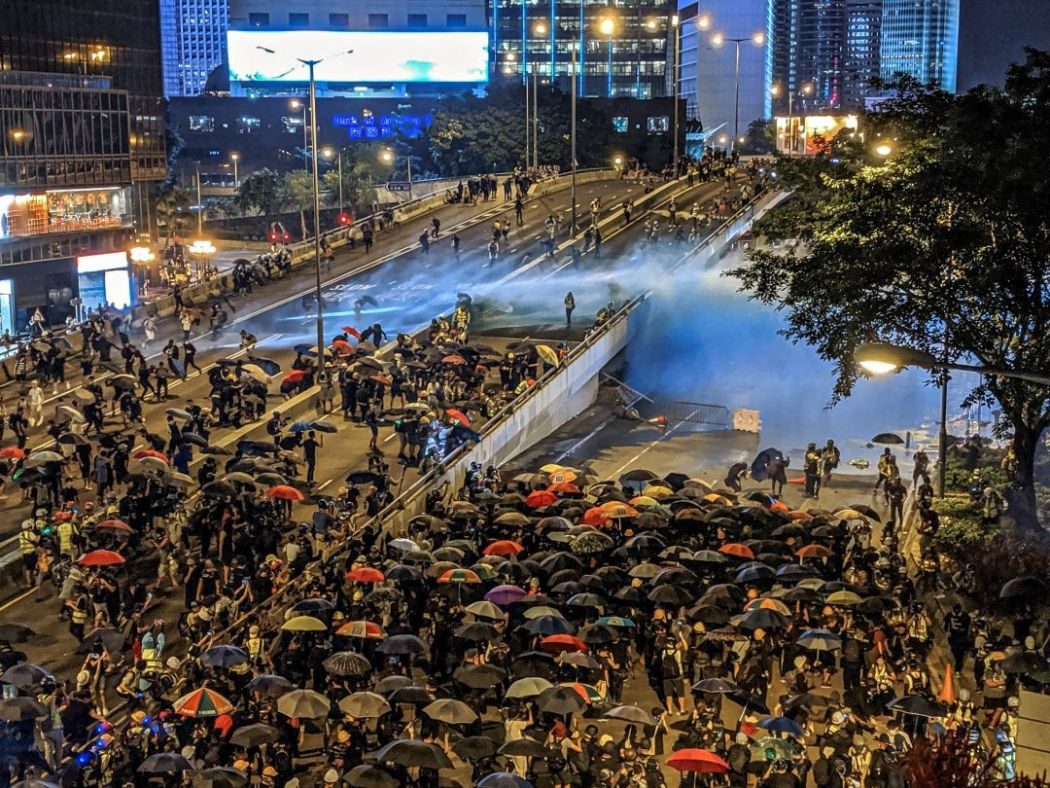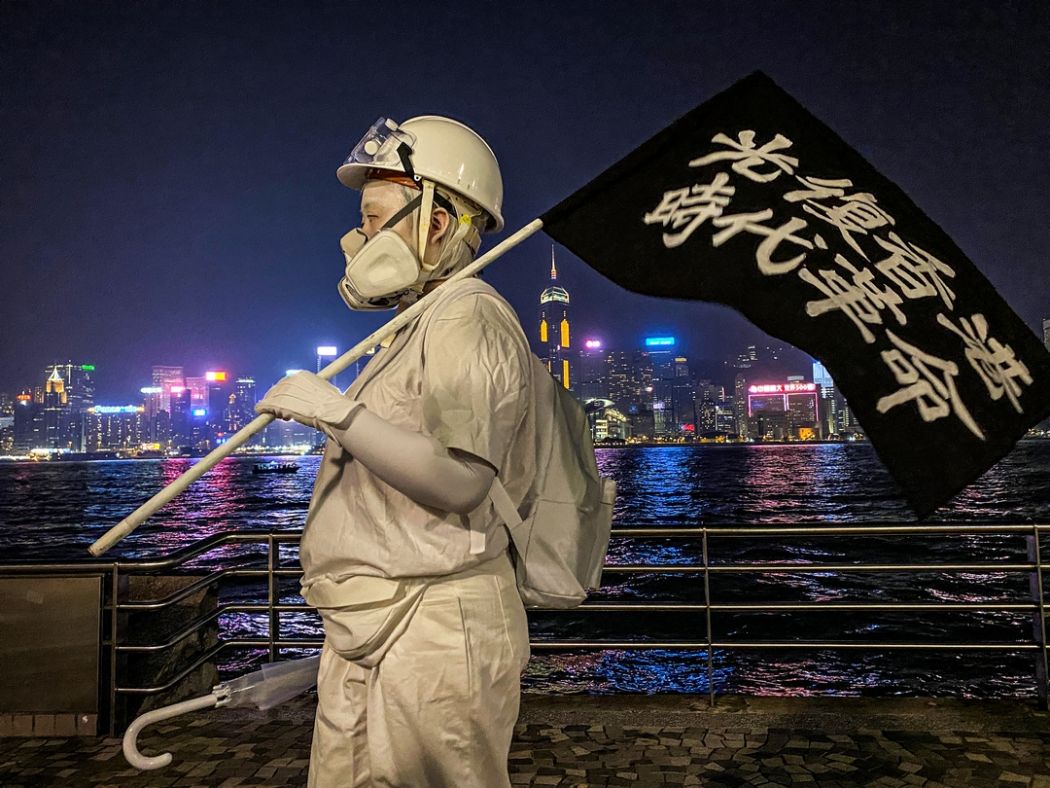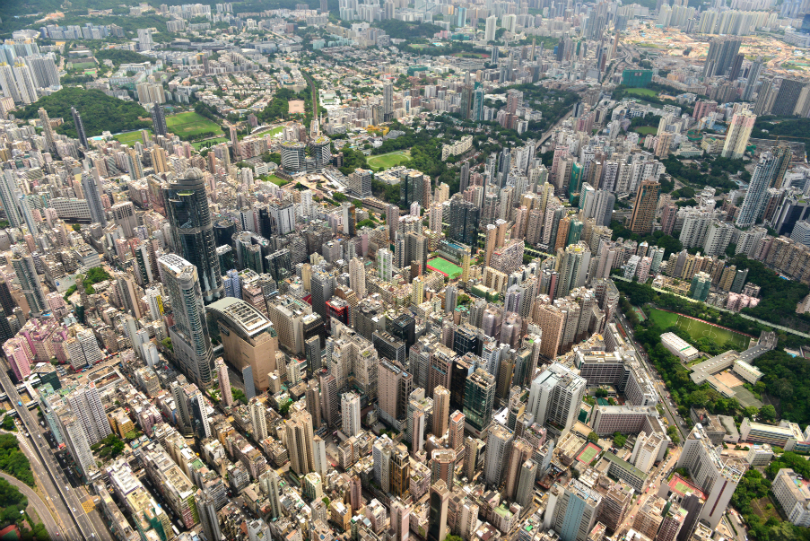There is a classic Monty Python scene in The Life of Brian where the leader of the People’s Front of Judea asks “What have the Romans ever done for us?” After a slight pause, one of the agitators says, in a quiet voice, “irrigation.” Another voice comes “roads.” And the list goes on…
The other night, a friend of mine asked me the inverse question: “What material thing have the Chinese ever done against Hong Kong?” Now, he was clever enough to qualify the question with the word “material” and that of course serves two functions: first, it shifts the ground to a purely economic argument and, second, makes a response much harder to specify. So, now I’ve had time…
Let me start with the word “material.” This harks to the widely held theory that the only thing Hong Kong people care about is money.
This theory does not stand up to even cursory inspection: aside from the fact that nearly everyone everywhere has no choice but to care to some extent about money, Hong Kong has a vibrant civil society, with many people engaged in charities, churches and, of course, political movements. A more precise formulation of the charge is that Hong Kong people are apolitical.

Most Hong Kong people, the theory goes on, arrived as poor refugees in the 1950s and 60s, kept their heads down and worked hard to better themselves. Their spoilt children and now grandchildren, with their sense of entitlement, are parasitic on this ethos, using the extradition bill as a platform to indulge themselves; they neither know nor understand the politics but rather are out there having fun.
Some protestors are, no doubt, along for the ride, politically plastic or under severe peer-group pressure. But, having participated in the legal demonstrations last summer, I testify that a substantial proportion of those protesting were well past the volatile age of late youth and young adulthood.
I walked largely surrounded by what seemed to me a cross-section of society in age and, though it’s harder to gauge, material prosperity. Were those people aware of the inner nuances of political theory? I doubt it. But I can think of no motivation other than the political.
As Aristotle observed, man is a political creature, so to deny Hong Kong people a political sense is, in some part, to deny them their humanity. But it also flies in the face of historical facts.
Far from being apolitical, since my arrival in Hong Kong, huge numbers have taken to the streets: in 1989 in support of the Tiananmen protestors, in 2003 against Article 23, in 2014 against the proposed (and failed) arrangements for a chief executive to be selected by universal suffrage and, of course, last year.

They did this not because they were politically naïve or wanted to be part of a thing, but because their parents and grandparents fled the very system that now seeks to take over Hong Kong. Though many fled poverty, many fled communism: look no farther back in time that the mass exodus of the mid-1980s when the Handover was finalised if you demand further proof.
Let us also not forget that not a single one of the five demands is material. The four outstanding demands are for a commission into police brutality, retracting the classification of the protestors as “rioters”, amnesty for arrested protestors, and dual universal suffrage. While some of these have material spillovers, none are for housing, schools, hospitals or pecuniary benefits (“hand-outs,” if you prefer).
Finally, let us not pretend that the United Front – for want of a better moniker – is any less political. It is they, after all, who attempted to introduce patriotic education, legislation on the national anthem and, of course, Article 23. The first two of these are gratuitous: they answer no pressing societal or economic problem; yet both are overtly political.
Now to the material challenge. First, as I’ve suggested above, it misses the point. The problem is not money, but politics. But the political side of things is not helped by the material facts and, in this respect, it is not what the CCP has done, but what it has failed to do.

At the highest level, a substantial part of Hong Kong’s economy is a patchwork quilt of cartel-monopolies that funnel money to an entrenched elite at the material expense of the average Hongkonger. The property cartel is most egregious of these and, as I’ve said before, makes the Hong Kong government itself the world’s largest property developer. The economic well-being of the population is a concern to the extent, and only to the extent, that we’re sufficiently well-off to pay our rent.
Another blatant example of government policy enriching rentiers can be found in the systems of licensing. The point of a licensing system is not to enrich licence holders, but to ensure a certain minimum level of safety and competence.
It does not cost $6 million or anything close to ensure that a sedan car is safe for public passengers, yet this is the going price for a taxi licence. The average taxi driver earns about HK$12,000 per month – he would have to work for over 40 years without eating or sleeping under a roof to earn enough to pay for a licence for the car he drives.
He is artificially impoverished by this system while the owners get rich for doing essentially nothing, and while passengers pay not for driver, car and fuel, but for the licence.
The scheme of control for power stations is another case in point. The utilities (and government) point to Hong Kong’s relatively low electricity prices, but this elides the fact that a major cost component of an electricity supply is the grid. Hong Kong is tiny, and the cost of the grid is correspondingly tiny.
That cost saving is only partially passed on. Rather, what we see is two utilities (CLP and HKE) that charge much higher prices than they otherwise could – again taking money out of our pockets. A side-effect is that, as renewables have much lower capital costs, Hong Kong’s use of them is no more than a fig-leaf.

The list goes on; the point is not what the CCP has done, but what it has not. Rather than setting a measured and equitable path to breaking up Hong Kong’s vested interests, the CCP actively colludes with them, and in some cases appears to be in their pocket. This is their choice.
The Hong Kong and Macao Affairs Office recently said that “the more sympathisers the tyrants have, the greater price Hong Kong will pay.” They, of course, when referring to tyrants, mean those who resist the CCP.
Ironically, those who see the CCP as the tyrants will heartily agree with their statement. The CCP’s greatest sympathisers, the United Front, have been causing Hong Kong to pay an enormous price in terms of diminishing and increasingly inequitable access to the good life.
Thus far, this has not been through what the CCP has commissioned, but what it has omitted to do.
The final response to “What have the Romans ever done for us?” is the single word “peace.” By failing to do what they could have done, the CCP and its United Front has created fertile ground for the opposite final response.

